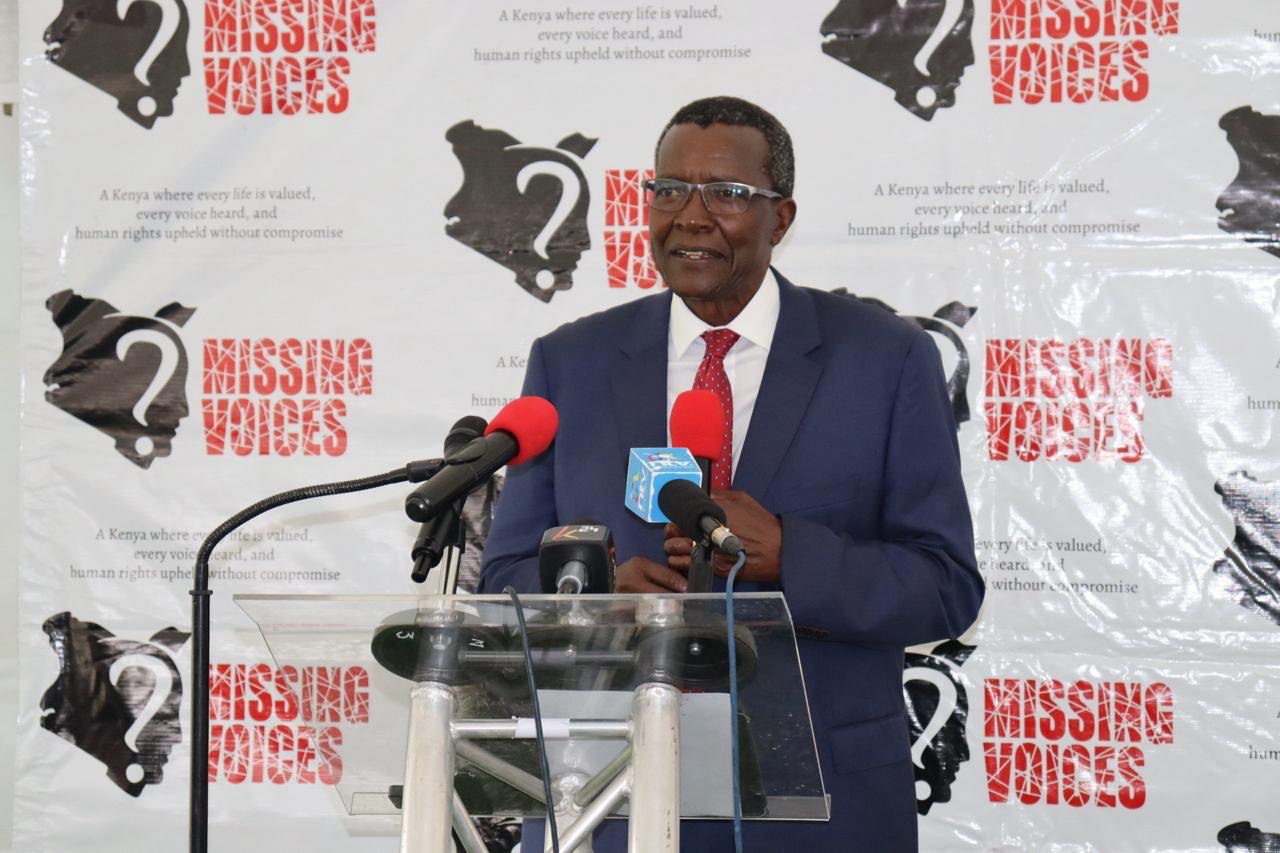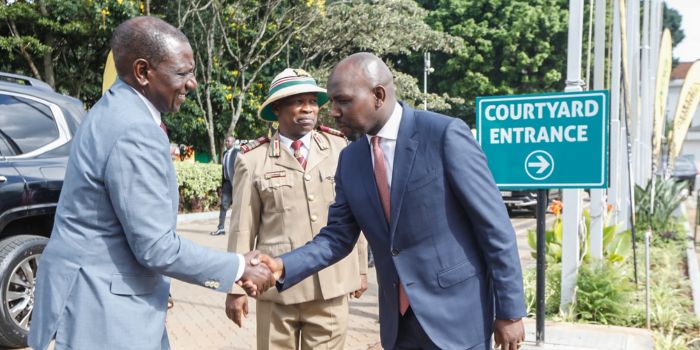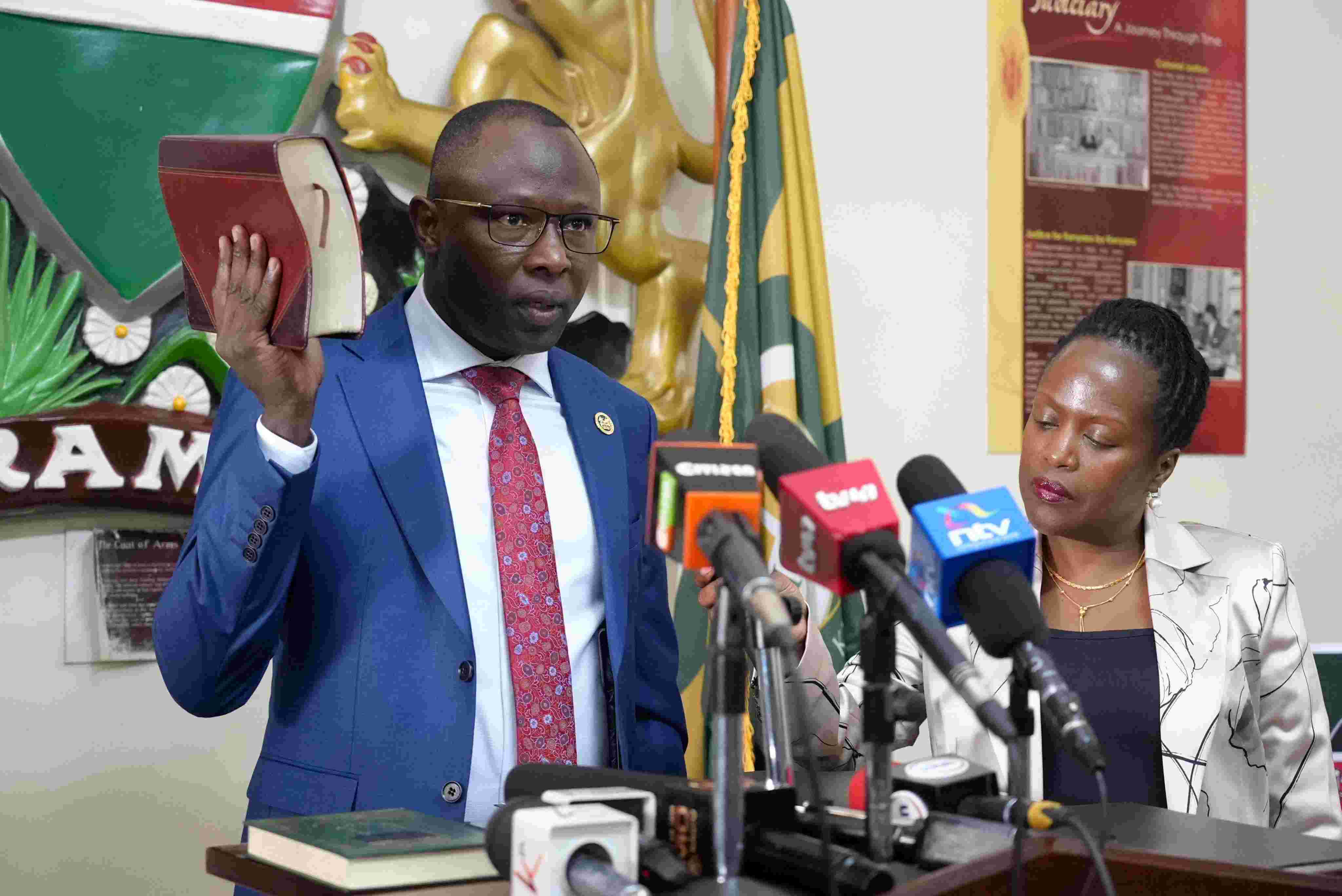Senate proposes law to allow public recall of nominated MCAs in push for equal accountability

The Senate Justice and Legal Affairs Committee wants the law to define valid grounds for recall, set out a clear procedure, and designate the institutions responsible for implementing the process.
Nominated Members of County Assemblies (MCAs) could soon be subject to public recall if proposed amendments to the law by the Senate are adopted.
The Senate Justice and Legal Affairs Committee is seeking to amend the County Governments Act to establish a clear, transparent, and inclusive process for recalling nominated MCAs, similar to the one in place for elected members.
Chaired by Bomet Senator Wakili Hillary Sigei, the committee wants the law to define valid grounds for recall, set out a clear procedure, and designate the institutions responsible for implementing the process.
As an alternative, they propose amending Section 9 and the Second Schedule of the Political Parties Act to empower political parties to recall nominated MCAs who fail to perform.
“We propose the enactment of the relevant legislation that provides for a participatory and transparent mechanism that allows members of the public, including Youth and Persons with Disabilities, to initiate recall proceedings against nominated MCAs where there is sufficient cause,” the report states.
The proposals stem from a petition filed by Laban Omusundi, a Nakuru resident and Executive Director of the Grassroots Civilian Oversight Initiative.
Omusundi told the Senate that current laws do not allow the public to recall nominated Members of County Assemblies (MCAs), even when they fail to represent the special interest groups they were appointed to serve, such as the youth or persons with disabilities.
He urged Parliament to amend the County Governments Act of 2012 to address this legal gap. While elected MCAs can be recalled through a public-led process, he noted, the same does not apply to nominated ones, making the law biased and exclusionary.
Subject to recall
The Senate committee supported his view, stating that a nominated MCA who fails to represent their designated interest group should be subject to recall, possibly by party members. The committee called for reforms to introduce public participation, clear thresholds for initiating petitions, and timelines to prevent abuse of the recall process.
Under current law, only elected MCAs can be recalled through provisions in the Elections Act.
The process includes filing a petition with the Independent Electoral and Boundaries Commission (IEBC), gathering signatures from voters, and, once conditions are met, holding a recall election. However, the High Court must first confirm the validity of the recall grounds to protect all parties involved.
The committee highlighted that a recall petition can only be filed by a registered voter from the ward where the MCA was elected. This requirement excludes nominated MCAs, thereby denying voters from special interest groups an avenue for accountability.
Senators are now pushing for these recall procedures to also apply to nominated MCAs. They are also advocating for stronger internal oversight within county assemblies to ensure all MCAs—elected or nominated—are held to the same standards of conduct and performance.
Unjust
They warned that treating elected and nominated MCAs differently under the law is unjust, especially since both have equal responsibilities in legislation and oversight at the county level.
“The Act, therefore, creates a disparity in measures of accountability between elected and nominated MCAs, without considering that both the elected and nominated MCAs hold decision-making and oversight roles in County Assemblies,” the committee observed.
The report also recommends stronger enforcement of constitutional values outlined in Article 10, such as accountability, public participation, and transparency.
It says nominated MCAs should be expressly required to follow these values and face consequences when they fail to do so.
During public participation, the Kenya Law Reform Commission (KLRC) supported the push for equal accountability, noting that Article 104 of the Constitution already allows the recall of members of Parliament.
The article also directs Parliament to enact laws specifying the procedure and reasons for initiating a recall.
KLRC added that a recall can only happen 24 months after an MP’s election and must not occur in the final year before the next general election. It must also be based on a High Court ruling confirming the grounds cited in the petition.
The Senate committee now wants the same principles applied to nominated MCAs to promote equal treatment, fairness, and improved public trust in county assemblies.
Top Stories Today
Reader Comments
Trending














































